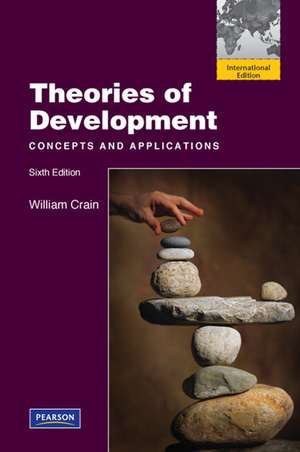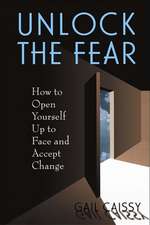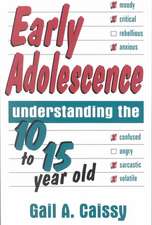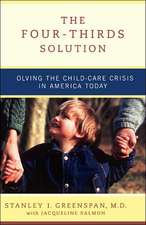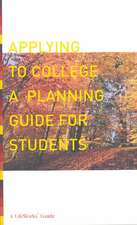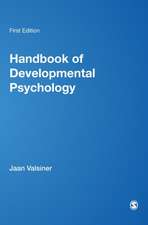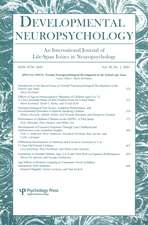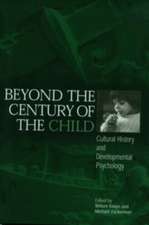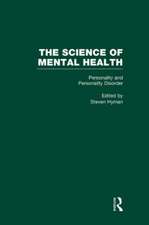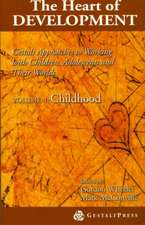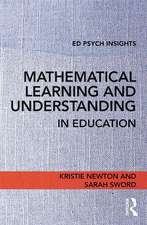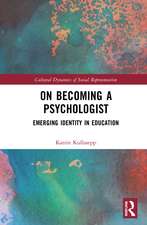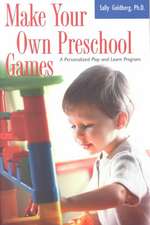Theories of Development: Concepts and Applications: International Edition
Autor William Crainen Limba Engleză Paperback – 31 iul 2010
The result of extensive scholarship and consultation with leading scholars, this text introduces students to twenty-four theorists and compares and contrasts their theories on how we develop as individuals. Emphasizing the theories that build upon the developmental tradition established by Rousseau, this text also covers theories in the environmental/learning tradition.
| Toate formatele și edițiile | Preț | Express |
|---|---|---|
| Paperback (3) | 388.27 lei 3-5 săpt. | +28.08 lei 4-10 zile |
| Taylor & Francis Ltd. – 5 iun 2017 | 388.27 lei 3-5 săpt. | +28.08 lei 4-10 zile |
| Taylor & Francis – 25 apr 2024 | 897.38 lei 6-8 săpt. | |
| Taylor & Francis – 28 iul 2010 | 1029.74 lei 6-8 săpt. | |
| Hardback (2) | 1014.74 lei 6-8 săpt. | |
| Taylor & Francis – 11 iul 2017 | 1014.74 lei 6-8 săpt. | |
| Taylor & Francis – 25 apr 2024 | 1343.56 lei 6-8 săpt. |
Preț: 516.30 lei
Preț vechi: 593.44 lei
-13% Nou
Puncte Express: 774
Preț estimativ în valută:
98.83€ • 107.38$ • 83.07£
98.83€ • 107.38$ • 83.07£
Carte indisponibilă temporar
Doresc să fiu notificat când acest titlu va fi disponibil:
Se trimite...
Preluare comenzi: 021 569.72.76
Specificații
ISBN-13: 9780205008629
ISBN-10: 0205008623
Pagini: 448
Dimensiuni: 152 x 229 mm
Greutate: 0 kg
Ediția:6Nouă
Editura: Pearson Education
Colecția Pearson Education
Locul publicării:Upper Saddle River, United States
ISBN-10: 0205008623
Pagini: 448
Dimensiuni: 152 x 229 mm
Greutate: 0 kg
Ediția:6Nouă
Editura: Pearson Education
Colecția Pearson Education
Locul publicării:Upper Saddle River, United States
Cuprins
1. Early Theories: Preformationism, Locke, and Rousseau.
2. Gesell's Maturational Theory.
3. Ethological Theories: Darwin, Lorenz, Tinbergen, and Bowlby and Ainsworth.
4. Montessori's Educational Philosophy.
5. Werner's Organismic and Comparative Theory.
6. Piaget's Cognitive-Developmental Theory.
7. Kohlberg's Stages of Moral Development.
8. Learning Theory: Pavlov, Watson, and Skinner.
9. Bandura's Social Learning Theory.
10. Vygotsky's Social-Historical Theory of Cognitive Development.
11. Freud's Psychoanalytic Theory.
12. Erikson and the Eight Stages of Life.
13. Mahler's Separation/Individuation Theory.
14. A Case Study in Psychoanalytic Treatment: Bettelheim on Autism.
15. Schachtel on Childhood Experiences.
16. Jung's Theory of Adulthood.
17. Chomsky's Theory of Language Development.
18. Conclusion: Humanistic Psychology and Developmental Theory.
Epilogue: A Developmental Perspective on the Standards Movement.
References.
Name Index.
Subject Index.
2. Gesell's Maturational Theory.
3. Ethological Theories: Darwin, Lorenz, Tinbergen, and Bowlby and Ainsworth.
4. Montessori's Educational Philosophy.
5. Werner's Organismic and Comparative Theory.
6. Piaget's Cognitive-Developmental Theory.
7. Kohlberg's Stages of Moral Development.
8. Learning Theory: Pavlov, Watson, and Skinner.
9. Bandura's Social Learning Theory.
10. Vygotsky's Social-Historical Theory of Cognitive Development.
11. Freud's Psychoanalytic Theory.
12. Erikson and the Eight Stages of Life.
13. Mahler's Separation/Individuation Theory.
14. A Case Study in Psychoanalytic Treatment: Bettelheim on Autism.
15. Schachtel on Childhood Experiences.
16. Jung's Theory of Adulthood.
17. Chomsky's Theory of Language Development.
18. Conclusion: Humanistic Psychology and Developmental Theory.
Epilogue: A Developmental Perspective on the Standards Movement.
References.
Name Index.
Subject Index.
Notă biografică
William Crain is professor of psychology at The City College of New York. A social activist, Dr. Crain served nine years on the Teaneck, NJ, school board and works for student access to higher education and the protection of nature and animals. He and his wife Ellen F. Crain, a pediatrician, have three grown children.
Caracteristici
- Updated chapters throughout: Features new information with respect to the theories of Bowlby, Ainsworth, Vygotsky, Kohlberg, Gilligan, and Chomsky.
- Offers students added information reflecting recent research.
- Offers students added information reflecting recent research.
- Biographical introductions: Each chapter begins by introducing the students to the people and historical conditions behind the development of each theory.
- Engages the students by giving them a context for the development of each theory so they can relate to it.
- Engages the students by giving them a context for the development of each theory so they can relate to it.
- Practical implications: Discusses how each theory applies to everyday issues and problems in education, child rearing, health care, etc.
- Shows the students the relevance of the theories to real life issues and problems.
- Shows the students the relevance of the theories to real life issues and problems.
- Extensive examples: Uses many stories and case studies to illustrate the basic concepts of each theory.
- Shows students the different elements of each theory at work in various situations.
- Shows students the different elements of each theory at work in various situations.
- Chapter-ending evaluations: After the theory has been explained and applied, it is discussed and compared to other theories introduced earlier.
- Gives students perspective on the theory as compared to other theories.
- Gives students perspective on the theory as compared to other theories.
- Inspiring conclusion: Shows how developmental theorists anticipated major themes in modern humanistic psychology.
- Shows students how theory illuminates positive human strivings.
- Shows students how theory illuminates positive human strivings.
- Updated epilogue: Discusses the standards and testing movement sweeping the United States.
- Gives students a developmental perspective on this dominant force in education today.
- Gives students a developmental perspective on this dominant force in education today.
- Coverage of theories by women: Full chapters on Margaret Mahler's theory of separation/individuation and Maria Montessori's educational philosophy; extensive coverage of Mary Ainsworth's attachment theory, and Carol Gilligan's critique of Kohlberg's theory.
- Provides a balance of theories.
Caracteristici noi
- Research and citations have been updated throughout.
- Expansion of the chapter on ethology, reflecting the author's growing conviction that the study of animal behavior casts considerable light on human development.
- Several chapters give greater attention to children’s play. At a time when education policymakers are so willing to sacrifice children’s free, creative play for the sake of higher test scores, it’s important to see how the great developmental theorists recognized the value of play. In addition, the chapter on Vygotsky adds a description of the popular, play-oriented Tools of the Mind education program, and the chapter on ethology concludes with a discussion of the question, “Is the young child’s urge to play innate?”
- Knowing that students want to discuss moral and philosophical issues as fully as possible, the 6th edition includes Kohlberg’s speculations about the possibility of a seventh stage of spiritual development.
